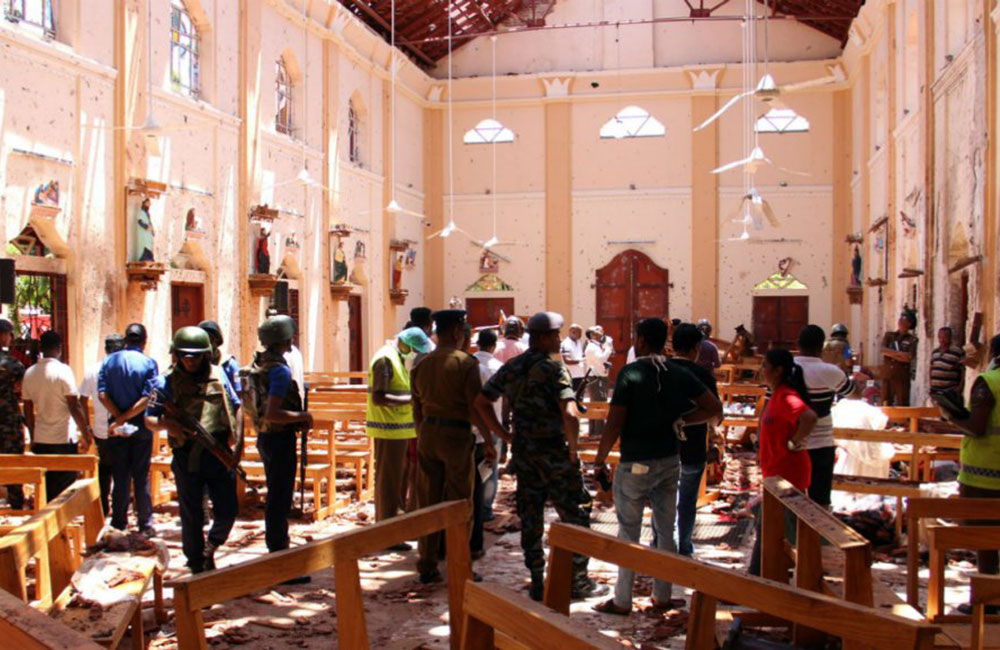On April 21, 2019, a series of coordinated terrorist suicide bombings wreaked havoc in Sri Lanka. The terrorists, linked to the National Thowheeth Jama'th targeted Christian churches and luxury hotels in Colombo. 253 people including at least 40 foreign nationals were murdered in these attacks, casualties that could have been avoided according to Indian investigative agencies, if the Island nation had heeded to the three warnings which came from intelligence gathered by the Tamil Nadu Police's Special Department assigned to monitor radical elements.
Close to two weeks before the attack, the Special Department in Tamil Nadu, had sent information to New Delhi regarding terrorist activity in Sri Lanka. The intelligence was gathered by the department's local sources in Colombo and adjoining cities. A total of three warnings had been sent.
"The exact way the information was gathered cannot be revealed but we gave accurate information to the Centre. Once the Special Department got to know of the attacks, the NIA, IB and R&AW was informed about it. We had even said very specifically that churches would be under attack," says a source aware of the intelligence transferred. "Once the Centre was aware, they sent it to Sri Lanka through the proper channels. This was at least 10 days before the attack," he adds.
The Sri Lankan government, however, allegedly took no action based on the intelligence provided. The TN Special Division's intelligence network in Sri Lanka continued to deliver important information, maintaining that the attack was imminent. Another message was sent from the Centre to the Sri Lankan authorities on the Wednesday before the attack.
"Once again they did nothing and the final message we sent was on Easter morning, hours before the attack. We told them, the terrorists are closing in. At least do something now. But over 200 lives were lost because they did nothing," says the intelligence officer. "They could have their own reasons to not believe any information that comes to them. But the least they could do it secure the churches, frisk people who are coming or at least have bomb detectors. They could have been cautious," he says.
Case in point is of course how Tamil Nadu reacted after a hoax caller from Bengaluru claimed that railway stations in the state would be under attack. Several district Superintendents of police that Tamil Nadu Minute spoke to were skeptical of the authenticity of the caller's information. Despite that security was increased across the state based on the DGP's orders.
"After the blasts, Indian Home Minister Rajnath Singh expressed his high regard to the Tamil Nadu Special Division which got the correct information regarding the imminent threat," says the intelligence officer. "We are dismayed that Sri Lanka failed to act and that our information could not save hundreds of lives. Despite this however we continue to give them intelligence reports and that is currently helping the government there."
(Tamil Nadu Minute)

Leave your comments
Login to post a comment
Post comment as a guest